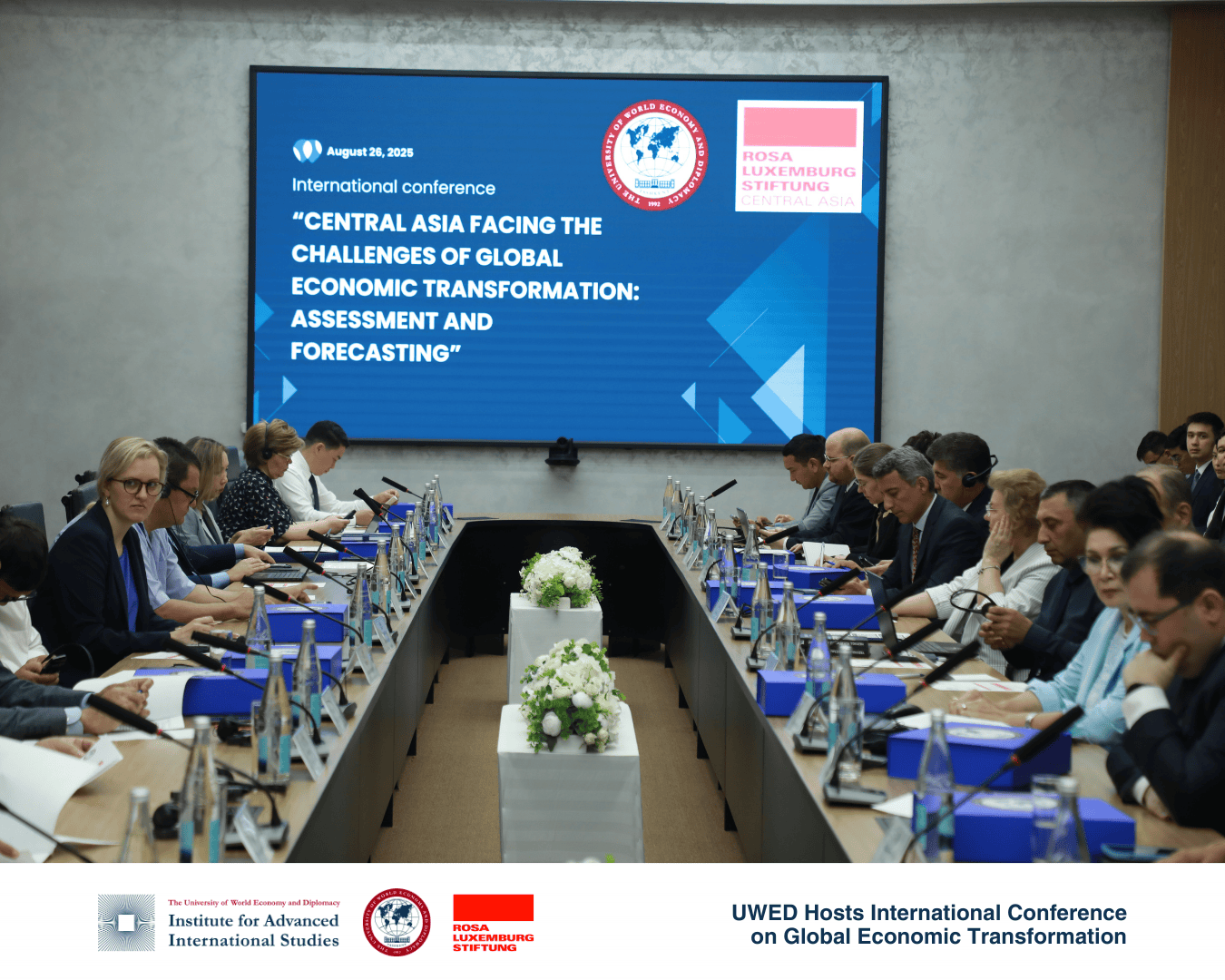
On August 26, the University of World Economy and Diplomacy (UWED) in Tashkent hosted the international conference “Central Asia Facing the Challenges of Global Economic Transformation: Assessment and Forecasting”, jointly organized with the Rosa Luxemburg Stiftung’s Representative Office in Central Asia. The event brought together prominent scholars, policymakers, and experts from across the region and beyond to assess the impact of ongoing shifts in the world economy on Central Asia and to explore long-term development prospects.
The conference opened with welcoming remarks by Prof. Sodyq Safoev, First Deputy Chairman of the Senate of the Oliy Majlis and Rector of UWED, and Prof. Heinz Bierbaum, Chairman of the Executive Board of the Rosa Luxemburg Stiftung. Their interventions highlighted the importance of inclusive dialogue on global economic trends and their regional implications.
Dr. Akram Umarov, First Vice-Rector for Academic Affairs of UWED and Director of the Institute for Advanced International Studies at UWED, moderated the first session devoted to global transformation processes and long-term economic trends. Later in the day, Rustam Makhmudov, Senior Research Fellow of IAIS, delivered a presentation in the third session with assessment of global challenges to the security and stability of Central Asia, and contributed to the concluding remarks of the event.
The first session was dedicated to assessing ongoing global transformation processes and identifying long-term trends. Discussions centered on geopolitical shifts, changes in global trade and production chains, and the implications of evolving relations among major economic powers for Central Asia. Particular attention was given to the interplay between European and Asian economies and the way these dynamics will affect regional integration, resilience, and growth opportunities.
Next panel examined the prospects for Central Asia considering new global challenges. The debate addressed the modernization of monetary policies, the potential of critical minerals and green energy, and the prospects for attracting foreign investment into regional value chains. Experts highlighted that sustainable development would require balancing economic openness with strategies of resilience amid uncertainty in the global economy.
Concluding session explored how global economic transformations affect the security and stability of Central Asia. Discussions considered the region’s vulnerability to external shocks, the risks stemming from deglobalization, and the social impact of global economic turbulence. Emphasis was placed on the need for coordinated regional responses to maintain stability and ensure resilience in the face of non-linear global economic dynamics.
The conference sessions featured insights from experts representing academic and policy institutions of Uzbekistan, Germany, Azerbaijan, India, China, Kazakhstan, Kyrgyzstan, Turkmenistan, and Tajikistan. Discussions covered a wide spectrum of topics, including the evolving role of Central Asia in world politics, trade and investment trends, energy and green economy prospects, and the security implications of global economic shifts.
The event served as a platform for advancing scholarly and policy-oriented dialogue, underlining UWED’s growing role as a hub for international expertise and exchange on critical issues shaping the future of Central Asia.